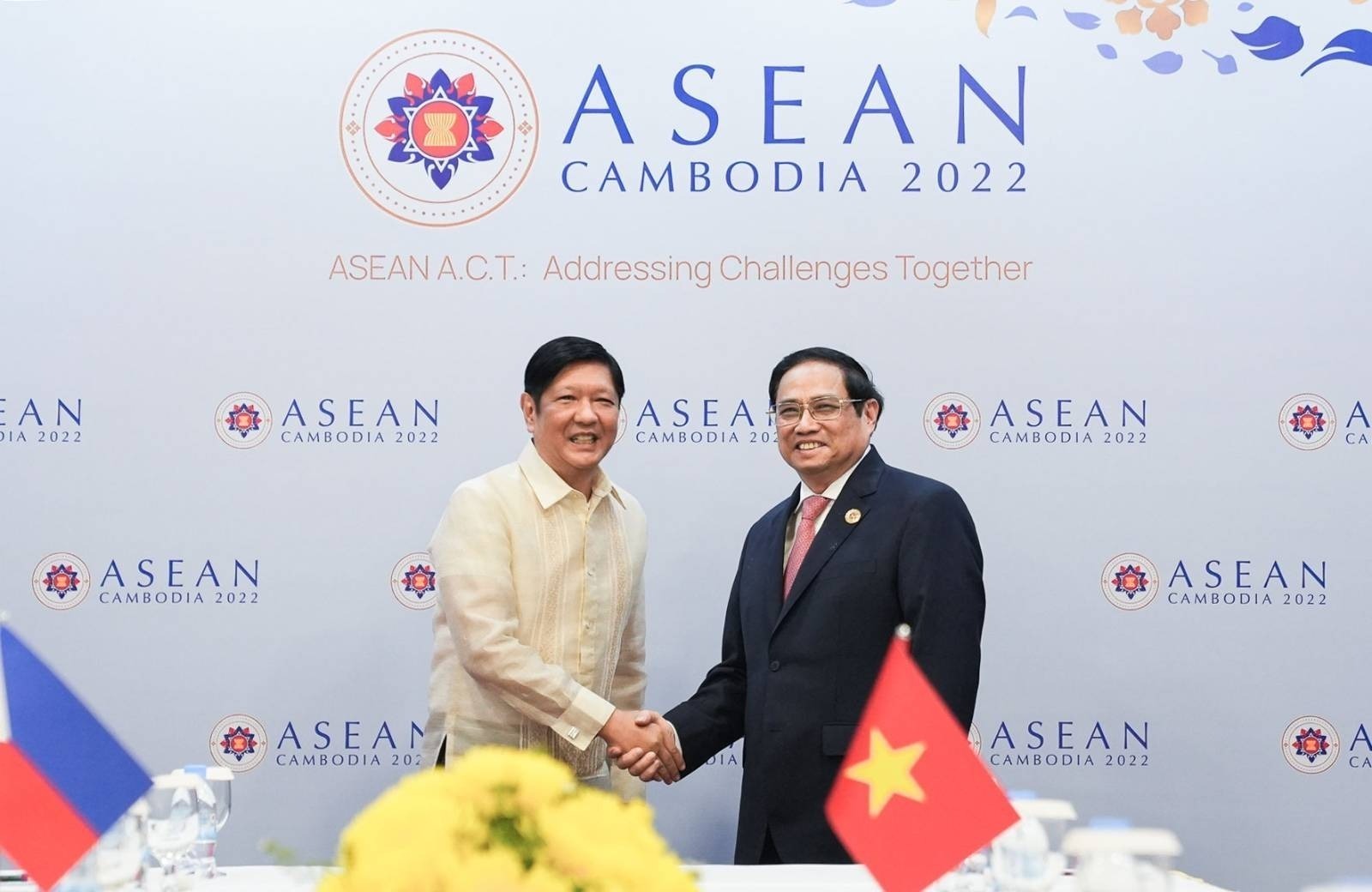
President Ferdinand Marcos Jr. and Vietnamese Prime Minister Pham Minh Chinh in Phnom Penh, Cambodia, on November 9, 2022. Photo from Office of the Press Secretary
MANILA, Philippines — President Ferdinand Marcos Jr. and Vietnamese Prime Minister Pham Minh Chinh are aiming to improve the Manila-Hanoi relations, particularly in areas of defense, maritime security, trade, and agriculture.
The two met Thursday on the sidelines of the 40th and 41st Association of Southeast Asian Nations (Asean) Summits and Related Summits in Phnom Penh, Cambodia.
“As we have observed, the Philippines and Vietnam, since the beginning of our diplomatic relationship, have had a burgeoning, a growing relationship – both in the political and security side and of course, in terms of trade and in people-to-people exchanges,” Marcos said.
He also noted that while overall trade between the Philippines and Vietnam has surpassed its pre-pandemic level, there is still a trade imbalance which he hopes Hanoi will help resolve.
Marcos likewise referred to Vietnam as a key partner of the Philippines in ensuring food security, saying that at least 90 percent of Manila’s rice imports come from Hanoi.
As for the shared maritime interests and concerns of the two nations, Marcos raised the advantages of exchanging intelligence and strategies through continued dialogues.
He even pressed on the need for the Asean to come to a mutual understanding when handling issues such as the rising tensions in Taiwan and the crisis in Myanmar.
“All of these issues are of extreme importance and of extreme urgency. And that is why I believe Asean must find common ground from which to face those challenges,” Marcos said.
Pham, for his part, hailed the Philippines for its COVID-19 response and high gross domestic product growth rate.
“I wish to send my congratulations to the people of the Philippines for containing the COVID-19 pandemic and sustaining a high growth rate of GDP,” he said.
The Vietnamese leader also invited Marcos for a state visit to Vietnam, which the Philippine leader accepted.
RELATED STORIES
Bongbong Marcos to Cambodia business leaders: We’re steering PH economy in right direction
Marcos aims to build 1 million low-cost houses annually: ‘We will try very, very hard’